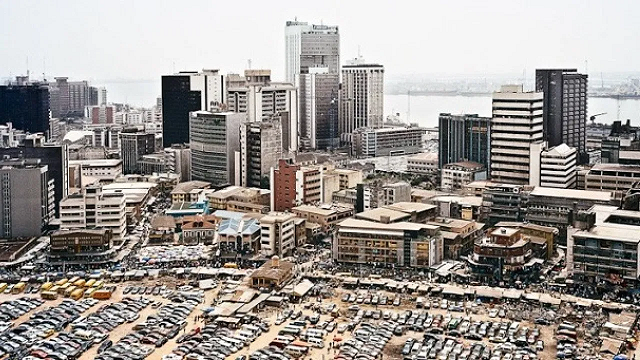Nigerian stockbrokers called on the United Nations (UN) to lead concerted discussions with the World Bank and other high-income countries to consider writing off sovereign debts of emerging and developing countries (EMDE) like Nigeria to achieve a sustainable solution to their worsened debt crises.
In a review and preview titled “The Nigerian Economic Review 2021 and Outlook for 2022”, Chairman, Research and Technical Committee of Chartered Institute of Stockbrokers (CIS), Mr Akeem Oyewale, who presented the report on behalf of the institute, said debt write-off, access to vaccines, political stability and key economic reforms are long-term sustainable solutions to lifting up emerging and developing countries, which poor economic conditions have been worsened by the COVID-19 pandemic.
According to the institute, creditor nations and multilateral agencies need to take a more sympathetic look at the debt problems of the emerging and developing economies because while debt restructuring was welcome, many of these debts will have to be outrightly disclaimed to give effective succour to the debtors.
“We appeal to the United Nations, World Bank, and the various developed and high-income countries of the world to give a more benevolent consideration to countries of the emerging and developing economy (EMDE) bloc, including Nigeria, and grant them greater access to COVID -19 vaccines and palliatives.
They should also consider writing off a significant portion of the countries’ sovereign debts as a sustainable solution to their worsened debt issues arising from COVID-19,” Oyewale said.
According to the institute, while inequality, unevenness, and imbalance have been ever-present themes in global economic discourse throughout history, those issues became more obvious than ever in 2021.
“It was the consensus of economic analysts, going into 2021, that reactions to the COVID-10 pandemic, especially concerning application of vaccines, would define the shape of the various sovereign economies during the year. That indeed was the case.
“While the developed countries started vaccinating their citizens in December 2020, the AstraZeneca / Oxford vaccine shipped to Nigeria was administered to its first beneficiary in March 2021, a time gap of over three months.
“Consequently, while 75 per cent of the population of high-income countries have so far been vaccinated against COVID-19, only seven per cent of the low-income countries have,” he noted.
The huge disparity between the two categories of economies was attributed in significant measure to the slow pace of vaccination in the low-income bloc.
Besides, international trade has been significantly disrupted to the advantage of the developed countries but to the detriment of the poorer ones, which depend substantially on trade to sustain their economies. Low and middle-income countries had made significant progress in growing their share of global exports in the two decades before COVID.
In a comprehensive report, Oyewale acknowledged the key drivers of the Nigerian capital market in 2021 and the factors that will shape the economy this year, with recommendations on how to put the economy on sound footing.
According to him, aspects that will shape the economy this year include groundwork for the 2023 general election, the government’s management of Omicron and COVID 19 effects, implementation of the Petroleum Industry Act (PIA), and National Development Plan, 2021- 2025, and financing of 2022 budget.
“The Federal Government, the Independent National Electoral Commission, and the various political parties should act with the spirit of fairness and tolerance, eschewing any act that may lead to violence in the run-up to the 2023 general elections. The philosophy of building a private sector-led economy as enshrined in the National Development Plan should be strictly adhered to,” Oyewale said.
He recommended that the commercialisation of the NNPC should be followed up with the public listing of its shares in the stock market, thus giving the average Nigerian citizen the chance of being a part-owner of one of the country’s commanding heights.
Oyewale said, “To sustain the upbeat tempo of activity in the capital market, the CBN and banks in the country should take a more liberal position in granting trading facilities to securities dealing firms in the country.
“Further on market liquidity, Pension Funds and other institutional investors in the country should significantly increase their investment in the equity market to create the much-needed stability and galvanise further investment.
“Finally, we call on the National Assembly to expedite passage of critical capital market Bills currently before them, to enhance market development and bring our market to par with the developed world.”













